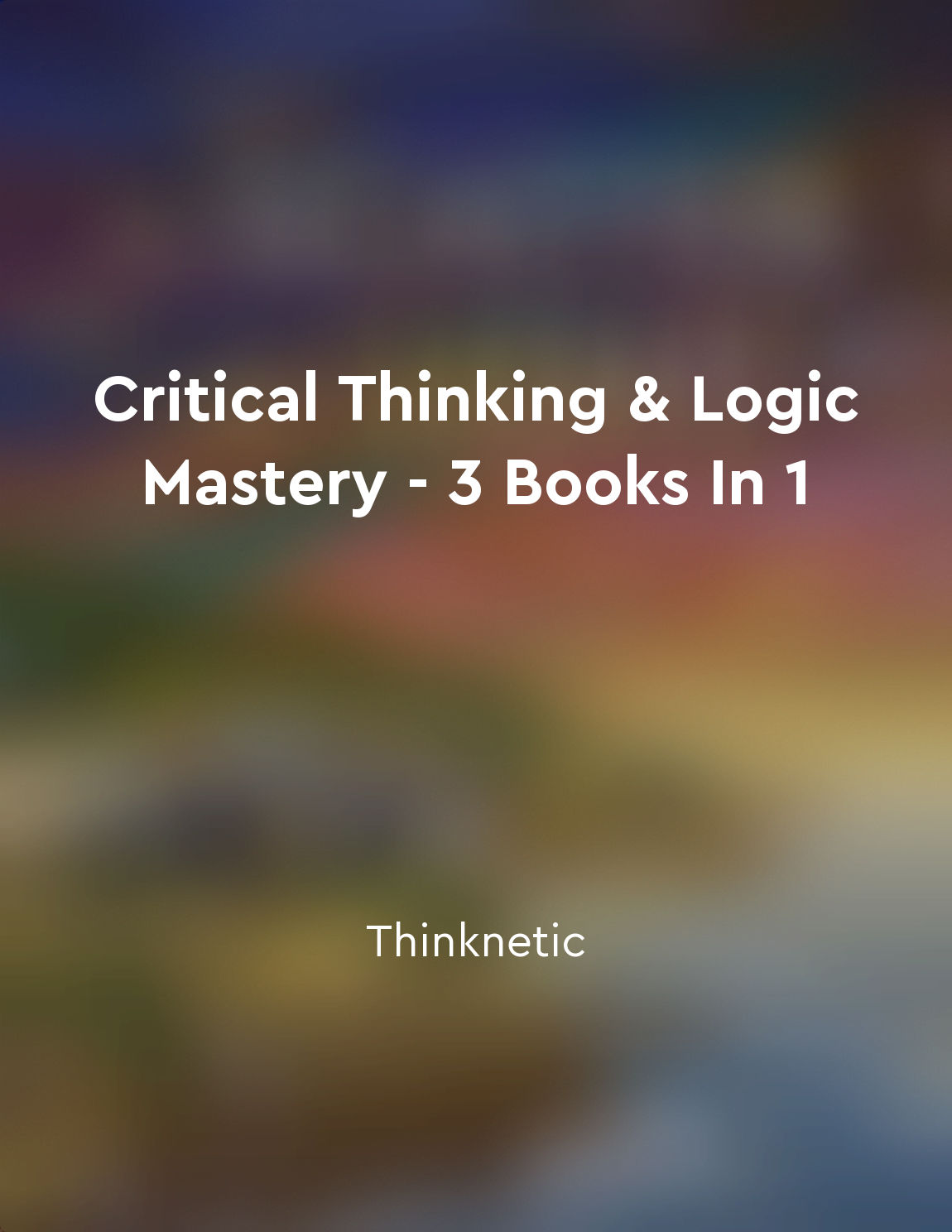Moral decisions are based on rational deliberation from "summary" of THE CRITIQUE OF PRACTICAL REASON by Immanuel Kant
In moral decision-making, rational deliberation plays a crucial role. It is through the use of reason that individuals are able to assess various ethical dilemmas and come to a decision that aligns with moral principles. Kant argues that moral decisions cannot be based solely on emotion or desire, as these factors are subject to change and may not always align with universal moral laws. Rational deliberation involves carefully considering the consequences of one's actions, as well as the principles that guide those actions. By using reason to weigh the potential outcomes of different choices, individuals can determine which course of action is most in line with moral duty. This process requires individuals to set aside personal biases and preferences in order to make an impartial judgment. Kant emphasizes the importance of using reason to determine moral laws that are universal and applicable to all rational beings. By engaging in rational deliberation, individuals can uncover these universal moral principles and apply them to their decision-making process. This ensures that moral decisions are not based on subjective opinions or cultural norms, but on objective principles that are binding on all rational beings. Through rational deliberation, individuals are able to transcend their individual interests and consider the greater good. By using reason to guide their moral decisions, individuals can act in a way that upholds moral duty and respects the inherent worth of all rational beings. This process of rational deliberation is essential for creating a moral framework that is based on universal principles and promotes ethical behavior in all aspects of life.Similar Posts

Understanding fallacies can improve reasoning skills
Understanding fallacies is crucial in the development of better reasoning skills. By being able to identify common fallacies su...
Acceptance of uncertainty is key
The notion of embracing uncertainty as a fundamental aspect of human existence is of paramount importance in understanding the ...
Socrates discusses the concept of the noble lie
In the text, Socrates introduces the notion of the noble lie as a means to establish social order and harmony within the ideal ...

Decision fatigue can lead to procrastination and impulsivity
When faced with a series of decisions, especially complex ones, our brains can become tired and overwhelmed. This mental exhaus...
Stay committed to personal growth
To achieve personal growth, you must remain dedicated to the process. This means committing to continuous learning and improvem...
The pursuit of knowledge is a lifelong journey
The endeavor to acquire knowledge is a ceaseless expedition that spans the course of our lives. It is a voyage filled with endl...

Religious texts should be scrutinized with a critical eye
It is essential for individuals to approach religious texts with a critical eye. This means questioning the content and teachin...
Rationalism and empiricism are complementary
Rationalism and empiricism are two opposing approaches to gaining knowledge. Rationalists believe that knowledge is derived fro...
Substance, causality, and modality are necessary concepts
In the realm of metaphysics, certain concepts are deemed necessary for our understanding of the world. Substance, causality, an...

Rationality is an ongoing process of selfimprovement and learning
The idea of rationality as an ongoing process of self-improvement and learning is central to understanding how we make decision...
